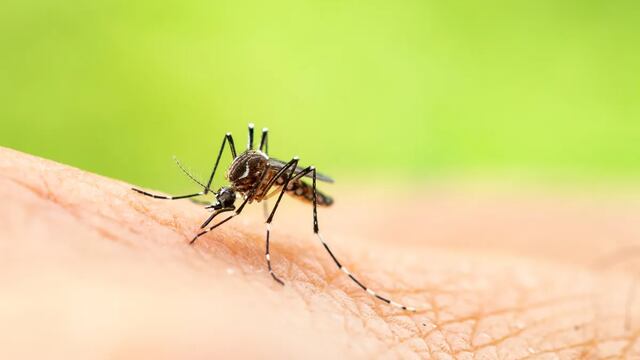With summer and mosquitoes season upon us, our team looked at the science available to answer one question: why do mosquitos bite some more than others?

Mosquito magnet? This is the reason why some people get bitten more than others: Find out if you are one of the lucky ones
Summer is back again, and the mosquitoes are, unfortunately, out to get us as their populations flourish in the warmer weather. There is good news for some as the season intensifies: Mosquitoes have preferences when it comes to who they bite. Is your blood type tastier to them?
Why do mosquitos seem to prefer some people more than others?
When in groups of people, you may find that you are bitten less than if you were to confront the pesky insect alone.
Of the more than 3,500 mosquito species, only 200 of them drink human blood. Studies done on this smaller subset are attacked to specific characteristics that can lead to receiving more or fewer bites.
Why you're a mosquito magnet pic.twitter.com/hpuoV7VyOf
— Insider Tech (@TechInsider) July 4, 2022
Carbon dioxide and blood types
With their strong olfactory senses, mosquitos can often identify the best places on the body to bite, usually the feet and ankles.
Researchers at the London School of Hygiene and Tropical Medicine found that human body odor and various chemical compounds can lead to more bites.
Medellín is now home to the world’s largest operating mosquito factory. Recently, our CEO Scott visited Medellín, where he saw the innovative ways WMP uses tools and systems to reach those at risk of mosquito-borne diseases.
— World Mosquito Program (WMP) (@MosquitoProgram) June 21, 2022
Learn more: https://t.co/xBQyLtFet9#ReleasingHope pic.twitter.com/fyLZETRvkA
Two compounds that our bodies naturally produce can attract mosquitoes: carbon dioxide and lactic acid. Adults tend to get bitten more frequently than children because they emit more carbon dioxide. Researchers later discovered that parasites can alter the scent of a human host, making them more attractive to mosquito bites. This is particularly concerning in regions where diseases like malaria, carried by mosquitoes, are prevalent.
A study from the American Journal of Entomology found slight differences in the blood type preference of mosquitos. The study tracked 300 mosquitoes; 192 were confirmed to have bit a person. Thirty percent of the insects bit someone with Type O blood.
Results from the blood type study
| Blood Group | Number of Bites | Percent of Total Bites |
|---|---|---|
| A | 34 | 17% |
| AB | 48 | 25% |
| B | 37 | 19% |
| O | 59 | 30% |
| Multiple Bites | 14 | 7% |
Related stories
Source: American Journal of Entomology
The insects’ reproduction levels, as indicated by the number of eggs laid, were consistent across all blood types. Additionally, previous research has shown that black and red tend to attract mosquitoes, while yellow and green have been found to repel them.


Complete your personal details to comment